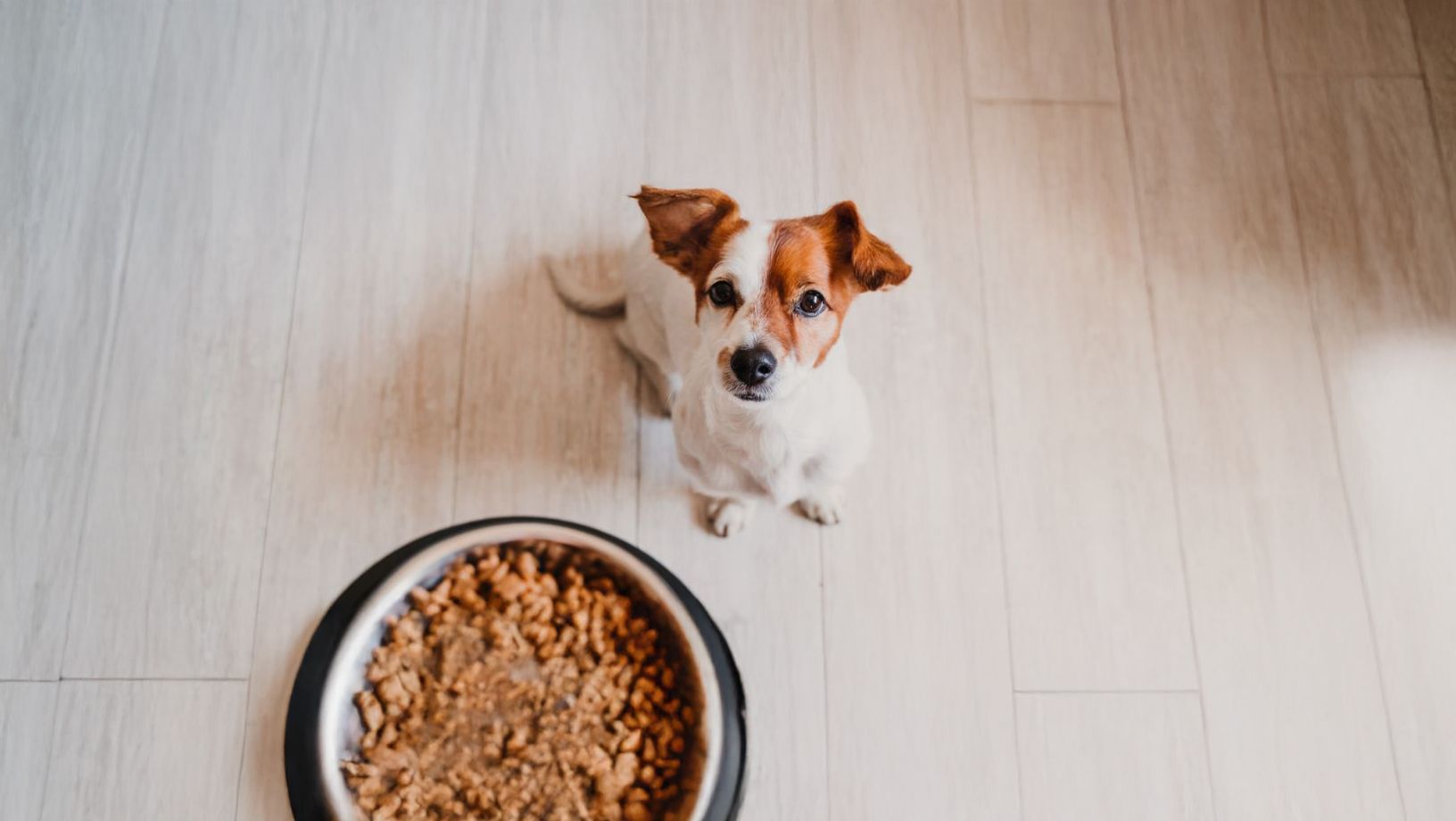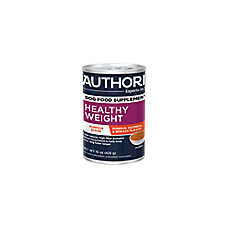What Thanksgiving Foods are Safe for Dogs?

In this Article
Thanksgiving is all about gratitude, family and comfort food. While you're enjoying turkey and all the trimmings this November, your dog might be waiting patiently for a bite. Before sharing from your plate, it's important to know which Thanksgiving foods for dogs are safe – and which ones should stay off their menu.
Quick guide: safe vs. unsafe Thanksgiving foods.
✓ Safe for dogs (plain, in moderation):
- Turkey (boneless, skinless white meat)
- Sweet potatoes and yams
- Green beans
- Plain pumpkin
- Carrots
- Apples (no seeds)
- Plain rice and potatoes
✗ Keep away from your dog:
- Onions and garlic
- Grapes and raisins
- Chocolate
- Xylitol (artificial sweetener)
- Alcohol
- Nutmeg and heavy spices
- Cooked bones
- Fatty foods, gravy and stuffing
Safe Thanksgiving foods for your dog.
Many classic Thanksgiving dishes can be safely shared with your pup – just remember to keep them plain, unseasoned and served in small portions.
Turkey (plain and cooked).
Plain, cooked turkey is safe for dogs when prepared correctly. White meat is leaner and easier to digest.
How to serve safely:
- Remove all skin, bones and excess fat: These parts are too rich and can cause stomach upset.
- Choose white meat: It's lower in fat than dark meat and gentler on digestion.
- Avoid heavy seasoning: Garlic, onions and strong spices are harmful.
- Serve in small pieces: A few bites are plenty for a festive treat.
- Skip: Fried or seasoned turkey, skin or bones that could splinter.
Sweet potatoes and yams.
Cooked sweet potatoes are rich in fiber, vitamins and nutrients – plus, they're a Thanksgiving staple. They make a healthy side dish your pup can enjoy, too.
- Safe preparation methods: Baked, boiled, steamed or mashed (without butter, milk or sugar).
- Avoid adding: Butter, brown sugar, marshmallows or spices like cinnamon and nutmeg.
Green beans.
Fresh or plain-cooked green beans are a nutritious option. They're low in calories and high in fiber, making them great for dogs who love crunchy veggies.
- Good choices: Steamed or boiled green beans with no salt or seasoning.
- Skip: Green bean casserole – it usually includes onions, cream of mushroom soup or fried onions that aren't safe for dogs.
Plain pumpkin.
Plain pumpkin (not pumpkin pie filling) supports healthy digestion and is easy to mix into your dog's food. Pet parents can also turn to pumpkin for dog constipation.
- Offer: Plain canned pumpkin (100% pumpkin) or fresh roasted pumpkin.
- Never give: Pumpkin pie, sweetened pumpkin products or spiced desserts.
Carrots.
Raw or cooked carrots for dogs make a safe and crunchy snack. They're low in calories and can even help clean teeth a little as your pup chews.
- Try: Raw carrot sticks, steamed slices or boiled pieces with no added seasoning.
- Avoid: Glazed carrots or those cooked in butter or brown sugar.
Apples.
Apple slices (without seeds or the core) are one of several fruits safe for dogs when served plain and in small amounts. Apple skin is safe, but seeds contain cyanide compounds and should always be removed.
- Serve: Fresh slices, cut small to prevent choking.
- Avoid: Apple pie, caramel apples or any sweetened apple desserts.
Plain rice and potatoes.
White or brown rice and plain boiled potatoes can be gentle on your dog's stomach. Mix a small portion with your pup's regular dog food for a gentle Thanksgiving meal. Potatoes must be fully cooked; raw potatoes are unsafe.
- Serve: A spoonful or two without butter, salt or gravy.
- Avoid: Mashed potatoes made with cream, butter or garlic.
Foods to keep away from your dog.
Many Thanksgiving favorites include ingredients that can be toxic to dogs. A few bites of the wrong food can lead to serious issues – so it's best to stick to pet-safe options.
Onions and garlic.
- Both are highly toxic to dogs and can damage red blood cells. Even small amounts can cause harm.
- Common culprits: Stuffing, mashed potatoes and gravies.
Grapes and raisins.
- These can cause sudden kidney failure.
- Watch out for: Stuffing, fruit salads and baked goods with dried fruit.
Chocolate.
- Chocolate contains theobromine, which dogs can't process.
- Avoid desserts like: Brownies, chocolate pie and chocolate cake.
Xylitol.
- This artificial sweetener can cause a dangerous drop in blood sugar.
- Check labels: Especially on sugar-free desserts, peanut butter and baked goods.
Alcohol.
- Even small amounts can be life-threatening to dogs.
- Keep away: Wine, beer and desserts made with alcohol, such as rum cake or bourbon pecan pie.
Nutmeg and other spices.
- Nutmeg, cloves and allspice can all be toxic to dogs.
- Avoid giving: Pumpkin pie, sweet potato casserole with marshmallows or spiced cider.
Fatty foods and gravy.
- Rich foods can upset your dog’s stomach, leading to vomiting or diarrhea — or, in some cases, even pancreatitis.
- Skip: Gravy, buttery mashed potatoes, creamy casseroles and turkey skin.
Stuffing.
- Stuffing often includes onions, garlic, butter or sausage.
- Even a small amount can cause digestive upset.
Cooked bones.
- Cooked turkey bones can splinter and cause choking or internal injuries.
- Always discard them safely.
Tips for a safe Thanksgiving with your dog.
Thanksgiving can be a little chaotic for pets, so a few precautions help keep things fun and stress-free.
- Create a safe space. If your dog feels overwhelmed by guests, give them a quiet room with their bed, favorite toys and fresh water. Soft background music can also help them relax.
- Set boundaries with guests. Kindly ask guests not to feed your dog from the table. A friendly reminder before dinner keeps everyone on the same page.
- Stick to regular meals. Maintain your dog's usual feeding schedule. Too many table treats can lead to tummy trouble, even if they're safe foods.
- Watch for dropped food. It's easy for scraps to hit the floor during prep and mealtime. Sweep or wipe often and keep your dog out of the kitchen when things get busy.
- Have an emergency plan. Save your vet's contact info and the nearest 24-hour emergency clinic. You can also contact the ASPCA Animal Poison Control Center at (888) 426-4435 if your dog eats something toxic.
What to do if your dog eats something harmful.
Accidents happen during busy holiday gatherings. If your dog eats something they shouldn't, act quickly.
Immediate steps:
- Contact your veterinarian or emergency animal hospital right away. Don't wait to see if symptoms develop.
- Know what they ate. Tell your vet exactly what food your dog consumed and approximately how much.
- Watch for symptoms. Signs of food poisoning include vomiting, diarrhea, lethargy, drooling, tremors or difficulty breathing.
- Don't induce vomiting. Unless specifically instructed by your vet, don't try to make your dog vomit. Some foods can cause more damage coming back up.
Healthy alternatives to table scraps.
Dog-safe Thanksgiving treats.
You'll find plenty of dog treats for Thanksgiving at PetSmart – made just for pups and free of harmful ingredients. They're a safer way to include your best friend in the celebration. You can even find treats made with seasonal flavors like pumpkin spice for dogs – a great way to let your pup join in the holiday fun!
Make your own dog-friendly feast.
Try this simple, dog-safe meal:
- 2–3 oz plain, cooked turkey (boneless, skinless)
- 2 tbsp steamed green beans
- 2 tbsp mashed sweet potato (no butter)
- 1 tbsp plain pumpkin purée
Mix together and serve at room temperature. It's festive, filling and safe.
Stick to regular dog food.
You can always make mealtime special by topping your pup's usual food with a spoonful of plain pumpkin or a few pieces of turkey. It's the safest way to celebrate together.
FAQs
My family has always given our dog table scraps and they've been fine. Is this amount of caution really necessary?
Yes. Some foods cause slow or hidden damage over time, even if your dog seems fine. It's safest to stick with plain, dog-safe foods and avoid risky ingredients.
Can dogs eat turkey on Thanksgiving?
Yes, dogs can eat plain, cooked turkey in moderation. Always remove the bones, skin and excess fat. Avoid seasoning and stick to small portions of white meat.
Can dogs eat cranberries or cranberry sauce?
Plain, fresh cranberries are safe in small amounts. Cranberry sauce, on the other hand, has too many added ingredients that can irritate a dog’s tummy.
Can dogs eat sweet potato casserole?
No, sweet potato casseroles often include sugar, butter or marshmallows – all unhealthy for dogs. Plain sweet potatoes are a much better choice.
Can dogs eat pumpkin pie?
No, pumpkin pie contains sugar and nutmeg, which can be problematic to dogs. Offer plain pumpkin instead.
Can dogs eat stuffing?
No, stuffing typically includes onions, garlic and butter – ingredients that can cause digestive upset or toxicity.
How much turkey can dogs eat?
Keep treats to no more than 10% of daily calories. A few small pieces of plain turkey – 1–2 oz for small dogs, 2–3 oz for medium, 3–4 oz for large – is plenty.
What should I do if my dog eats something unsafe?
Call your veterinarian or the ASPCA Animal Poison Control Center right away. Don't wait for symptoms like vomiting, drooling or weakness to appear.
Are sweet potatoes better than regular potatoes for dogs?
Yes. Sweet potatoes have more fiber and nutrients, making them a slightly healthier choice. Both are fine when plain and cooked.
Is it OK to give my dog turkey bones to chew on?
No. Cooked turkey bones can splinter and cause choking or internal injuries. Always dispose of them safely.
Need other dog supplies while you're shopping for Thanksgiving food for dogs? PetSmart also carries dog food, dog beds, dog treats, leashes & harnesses, flea & tick meds and more. Explore PetSmart’s Dog Shop to find everything your pup needs, all in one place.
PetSmart also offers services such as dog grooming services, expert dog training, safe and comfortable PetsHotel stays, and Doggie Day Camp for your pup to play and socialize. Services are available in select locations—check your local PetSmart to see what’s offered near you.
PetSmart offers convenient shopping with Curbside Pickup or in-store pickup. Need something today? We have select items available for Same-Day Delivery in most areas powered by DoorDash. For items you purchase frequently, PetSmart has Autoship that automatically delivers the items you want to your door as often as you’d like. Check the website to see which items are eligible.
Information in this article is not intended to diagnose, treat or cure your pet and is not a substitute for veterinary care provided by a licensed veterinarian. For any medical or health-related advice concerning the care and treatment of your pet, contact your veterinarian.
